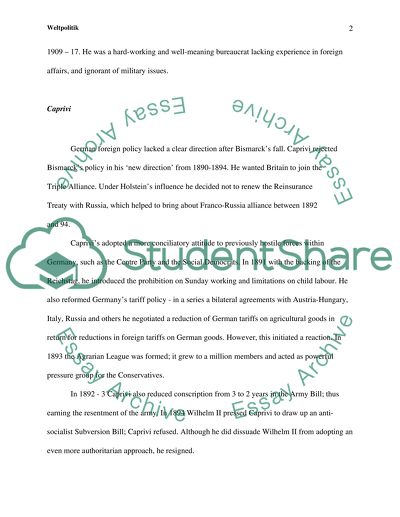Cite this document
(“Germany's Weltpolitik Essay Example | Topics and Well Written Essays - 1750 words”, n.d.)
Germany's Weltpolitik Essay Example | Topics and Well Written Essays - 1750 words. Retrieved from https://studentshare.org/history/1531632-germanys-weltpolitik
Germany's Weltpolitik Essay Example | Topics and Well Written Essays - 1750 words. Retrieved from https://studentshare.org/history/1531632-germanys-weltpolitik
(Germany'S Weltpolitik Essay Example | Topics and Well Written Essays - 1750 Words)
Germany'S Weltpolitik Essay Example | Topics and Well Written Essays - 1750 Words. https://studentshare.org/history/1531632-germanys-weltpolitik.
Germany'S Weltpolitik Essay Example | Topics and Well Written Essays - 1750 Words. https://studentshare.org/history/1531632-germanys-weltpolitik.
“Germany'S Weltpolitik Essay Example | Topics and Well Written Essays - 1750 Words”, n.d. https://studentshare.org/history/1531632-germanys-weltpolitik.


